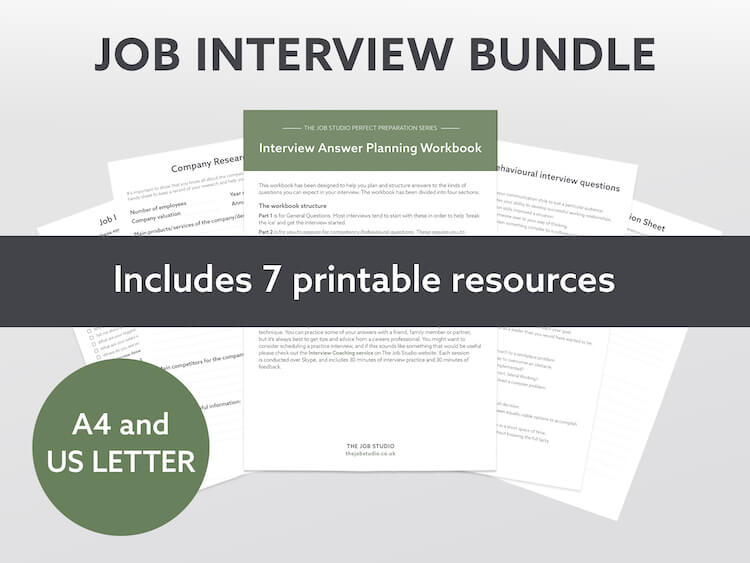
If you've never experienced one, it can be hard to know what to expect from a phone interview. Don't worry, because once you've read this article you'll be ready to succeed.
Telephone interviews are becoming an increasingly common part of the recruitment process, particularly for larger companies that want to keep costs down. Although they’re often only a precursor to a face-to-face meeting, telephone interviews are crucial. When you pick up the phone, you need to convince the interviewer you’re worth interviewing in person. By using these tips for phone interviews you will increase your chances of success and feel much more confident.
1. Know what to expect from a phone interview
The first thing to find out is whether your telephone interview is automated or not. A fully automated interview will involve you responding to pre-recorded questions, moving from one question to the next using the keypad. However, a more common format involves speaking to a real person on the other end of the line.
The time and date of your interview will usually be agreed beforehand, and this is important to know so you can be prepared. Some telephone interviews can be highly structured; once you’ve given your answer the interviewer may move on without a response. However, others are more informal in nature so you might end up having more of a 'chat' with your interviewers. Telephone interviews generally last between 20-40 minutes.
Turn interview stress into success

2. Anticipate questions
When I advise clients how to have a good phone interview, I always start by asking them what questions they think might come up. It’s impossible to know the questions your interviewer will ask but thanks to the internet you can try to find people who have been through the same process and shared their experience. Sites like Glass Door can be great sources of this information. Failing that, return to the job specification and look at what the company is looking for. If they’ve indicated they want someone who is flexible and adaptable, have examples in mind of times when you’ve shown this.
For tips on how to answer common interview questions read How to answer competency interview questions. You should also be prepared to answer a question or two about what you know about the company, and certainly why you're interested in working for them by reading How to research any industry in 5 easy steps.
3. Listen to the question
Have you ever been in an exam and spent 20 minutes writing only to realise you’ve read the question incorrectly? The same thing can happen in an interview. You’re so eager to respond that you don’t stop to process the question and think before answering. If you are unsure how to answer, ask for a moment to think. If you’re unclear what the question is asking, ask your interviewer to clarify or re-phrase the question.
4. Be clear
As with any interview, good verbal communication is essential. This is even more important when your interviewer only has what you say and how you say it to go on. To come across positively talk at a steady pace, not too fast that your interviewer can’t catch what you’re saying and not too slow to sound mundane and boring. It’s also important to avoid using fillers like ‘erm’ and ‘uhh’ – these only make you sound uncertain. Think before you speak and if you find it useful use signposting words like ‘Firstly… Secondly…’ which can give you more time to gather your thoughts and sound more professional. Standing up and smiling also helps you to sound more animated, enthusiastic and project your voice more effectively.
5. Find a suitable location
When figuring out how to have a good phone interview it's important to think about the practical side of things. Before your phone interview starts find a quiet location that’s free from distractions where you have good phone signal. If you're at home, notify anyone else in the building that you’re having a phone interview so they keep noise to a minimum. It’s often a good idea to write a sign for your door asking to not be disturbed.
6. Check your phone battery
You’d be amazed how many people forget to check their battery before a telephone interview. Make sure your phone is well charged and ideally have a charger nearby just in case.
7. Avoid using notes
It might be tempting to use notes in a telephone interview; your interviewers won’t know - they can’t see you! But the problem is, they’ll hear you! A seasoned interviewer can spot a mile off if a candidate is using notes. Your responses will be short and disjointed and your interviewer won’t be impressed.
8. Have a pen and paper nearby
There’s a big difference between using notes and making them. It’s good practice to have a pen and paper ready when on the phone in-case you’re given instructions or more detail about what to expect after the interview. You can jot down what you’ve said and the questions you remember immediately after so you can refer to them at a later stage.
Now you know what to expect from a phone interview and how to succeed, the next step is to start practicing! Get feedback on your phone interview technique by scheduling a practice interview today.
